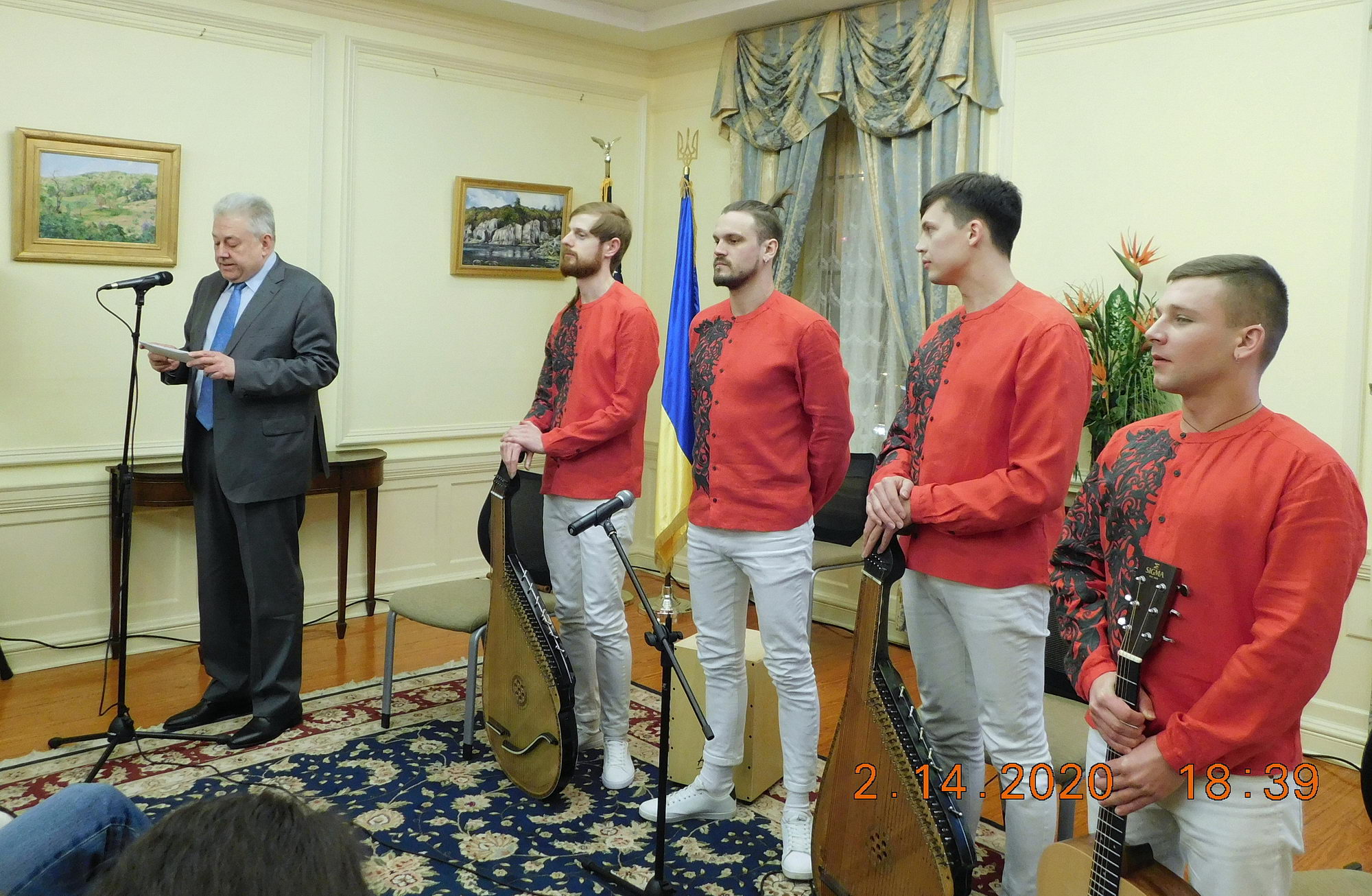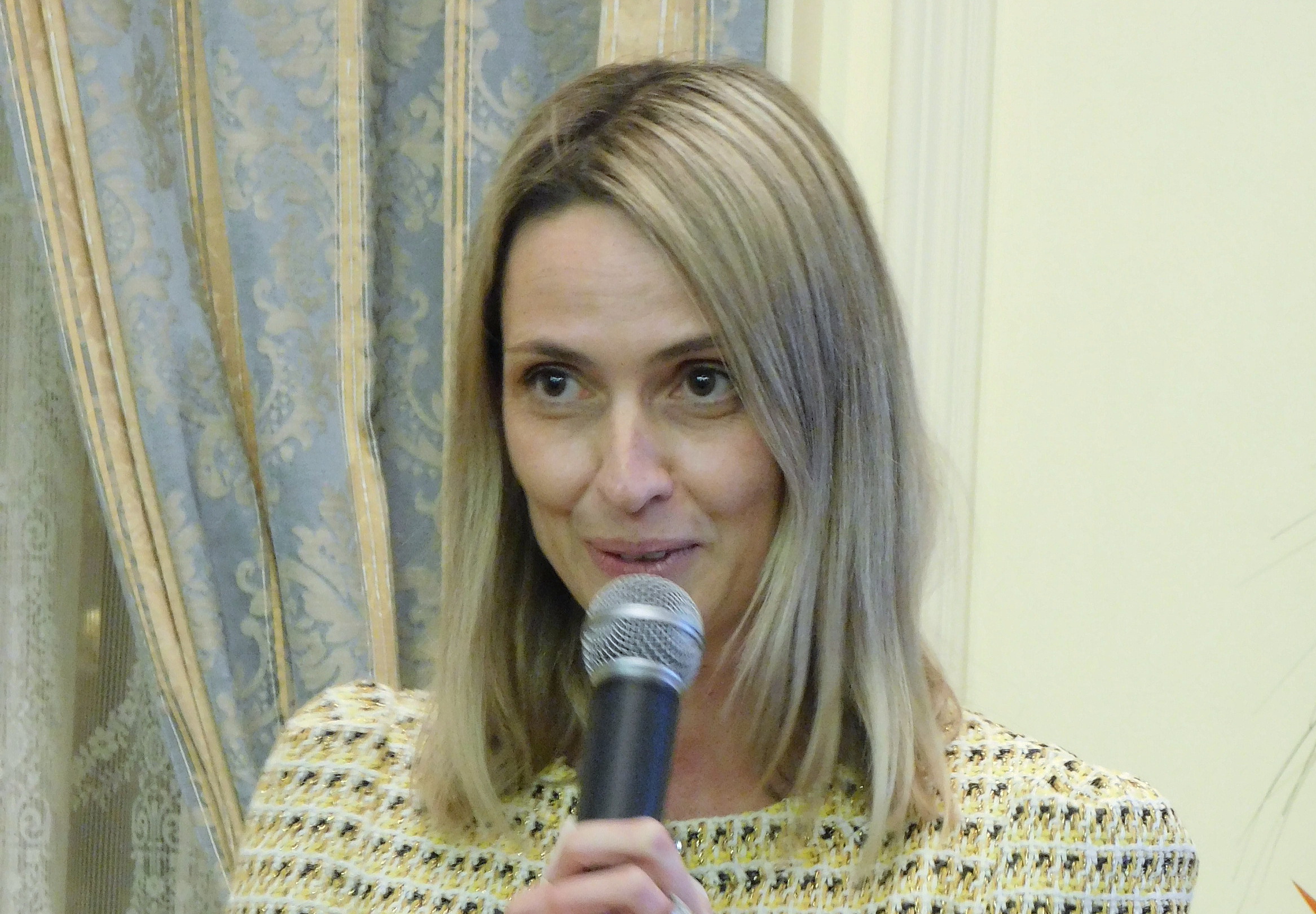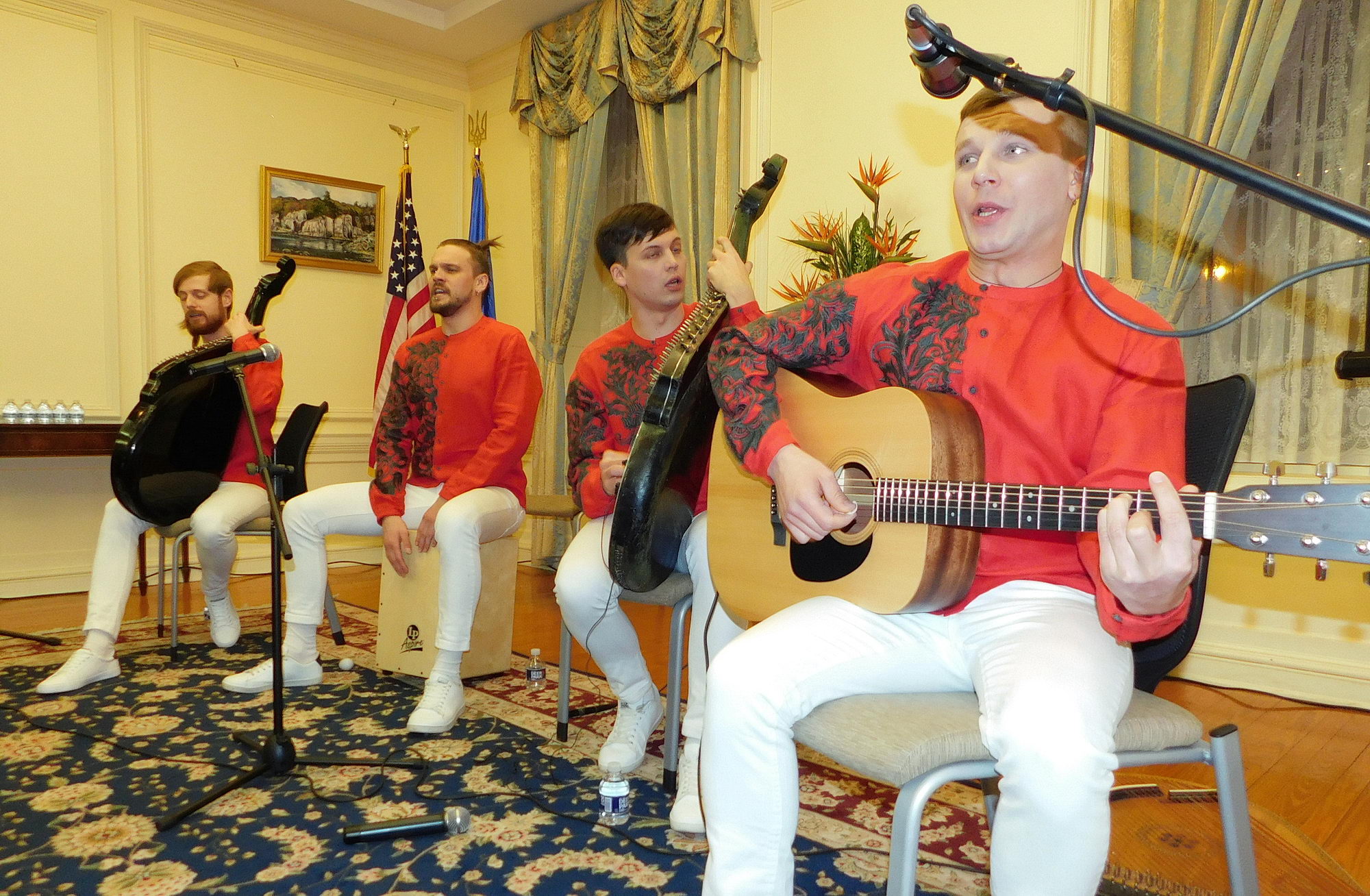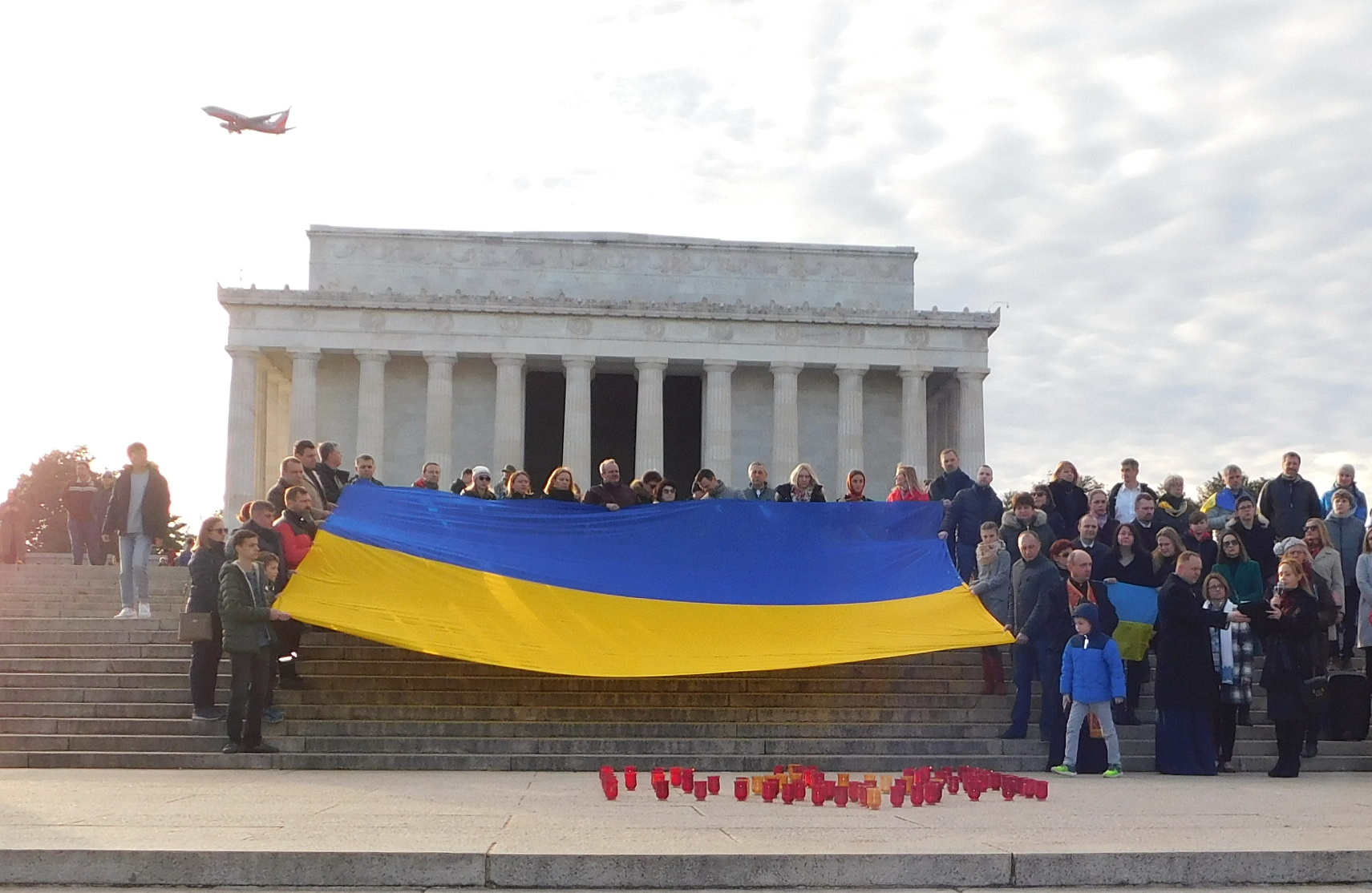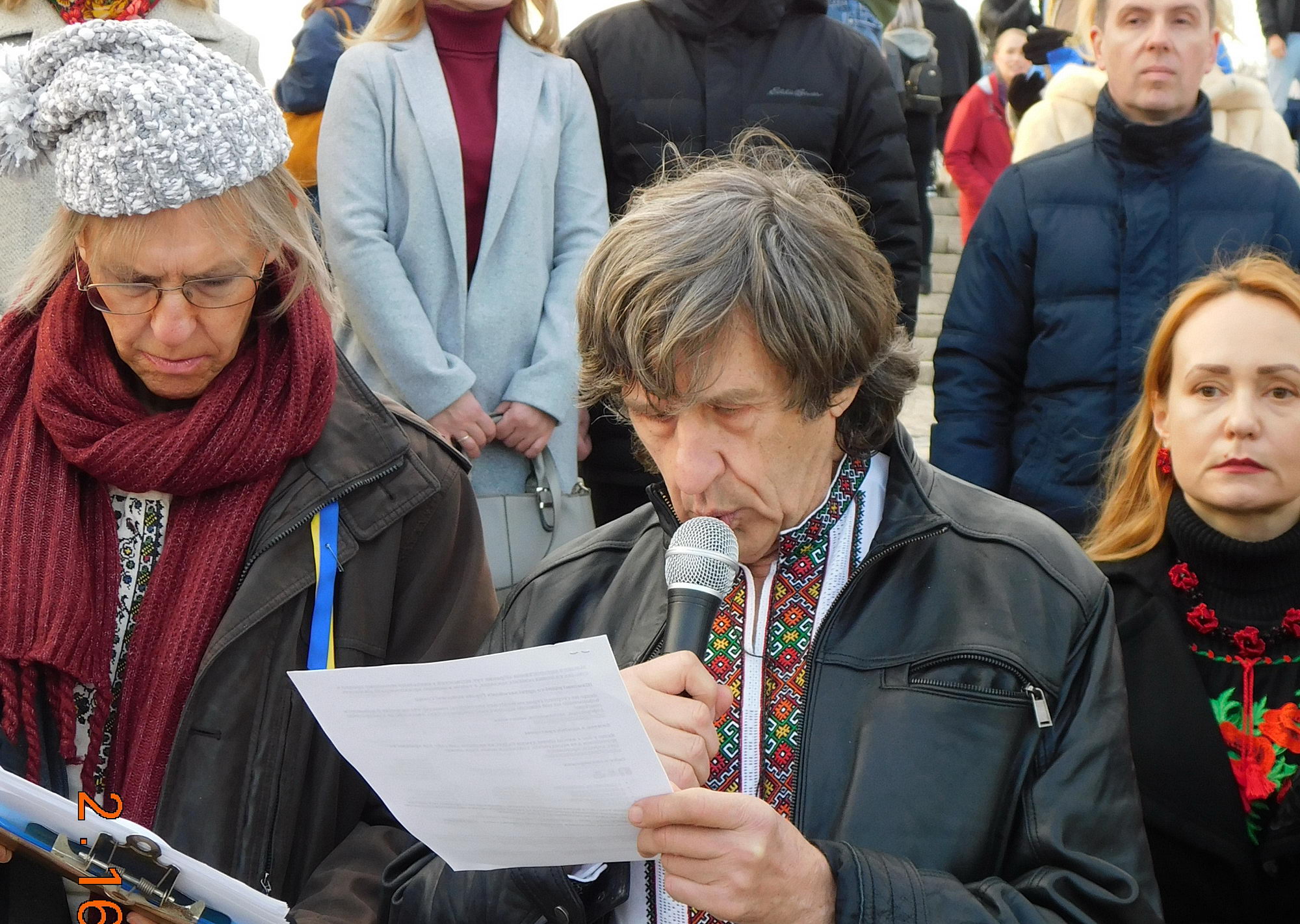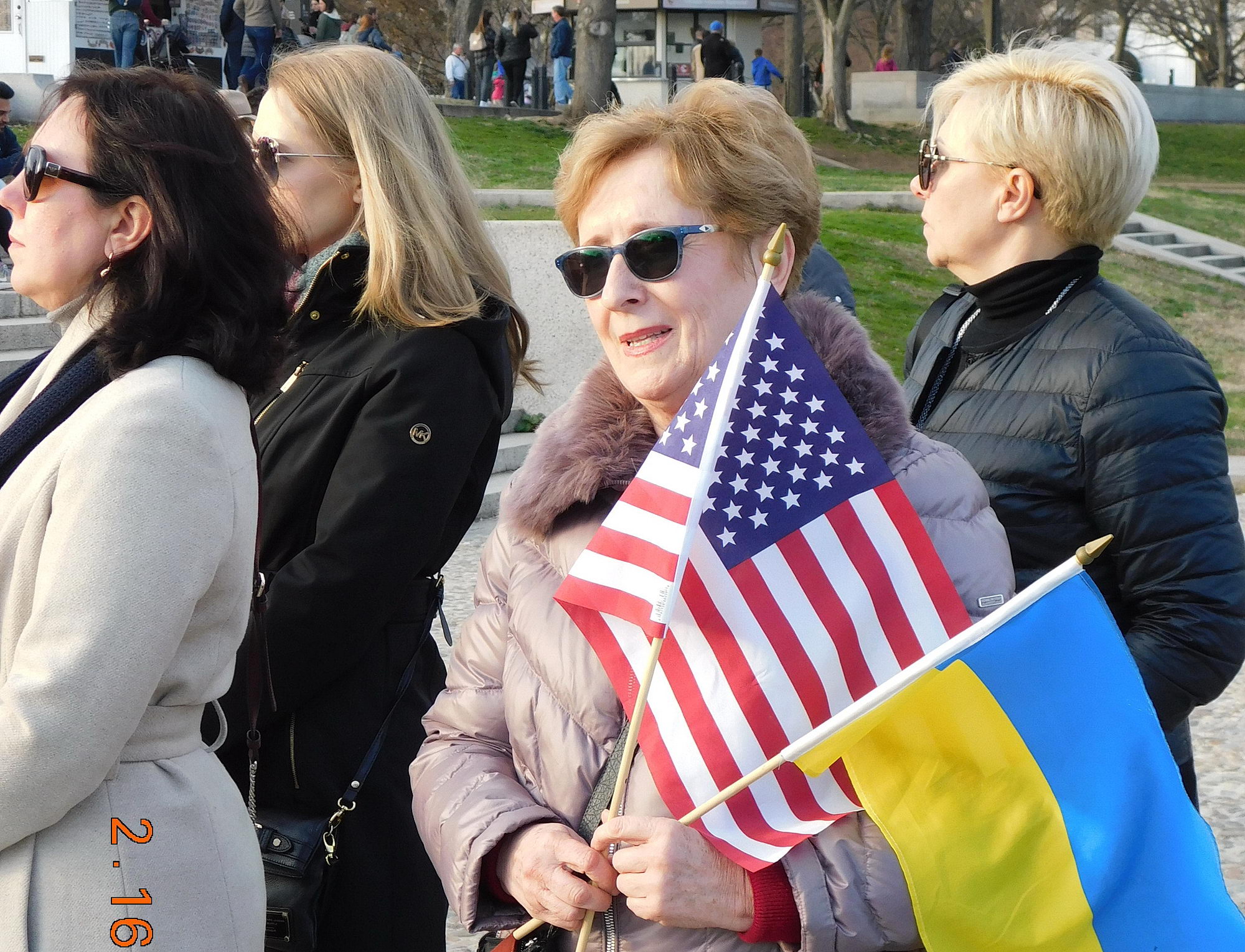WASHINGTON — The Ukrainian community in the American capital commemorated the upcoming sixth anniversary of the shootings of dozens of protesters in the center of Kyiv at the peak of the EuroMaidan Revolution that ended Kremlin-backed President Viktor Yanukovych’s rule on Feb. 22, 2014. The revolution lasted roughly 100 days and claimed roughly 100 lives — although the exact death count is still in dispute today.
On Feb. 16, the Ukrainian Embassy in Washington, as well as community organizations including United Help Ukraine, U.S. Ukrainian Activists, and diaspora in the Washington D.C., area, held a candlelit vigil against the backdrop of one of America’s most recognizable iconic monuments, the Lincoln Memorial.
On Feb. 18 and again on Feb. 20, police snipers opened fire on unarmed demonstrators. Some 100 were killed. The martyrs became known as the Nebesna Sotnya, Ukrainian for “the Heavenly Hundred.”
Thee murders, designed to crush the rebellion, instead struck fear in the Yanukovych regime. The disgraced president and many of his cronies fled to Russia, where they remain today. Russian dictator Vladimir Putin tried to take advantage of the turmoil to smash Ukrainian independence. His forces invaded and annexed Crimea quickly. Moscow then used its own troops and created one made of Ukrainian “separatist” proxies to seize a huge swath of eastern & southern Ukraine, which it called “New Russia” at the time.
But Ukraine did not give up — and still hasn’t six years later, fighting Moscow to a standstill.
Ukrainian regular military, hollowed out by Yanukovych, were bolstered by hastily-formed volunteer battalions. Together, backed by a unified society, the Ukrainian forces confronted and stopped the Russian forces and their allies, confining them to a part of eastern Ukraine called the Donbas, with the cities of Donetsk and Luhansk the largest population centers there. Russia remains in control of 7 percent of Ukraine’s territory, including the Crimean peninsula.
Since then, the fighting between Ukrainian and Russian-backed soldiers has claimed close to 14,000 lives.
The event at the Lincoln Memorial focused on the sacrifice of the massacred protesters, whose names were read out during a solemn ceremony with prayers and the singing of the Ukrainian and American national anthems.
One of those calling out the names of the Nebesnya Sotnya was George Sajewych, a former Voice of America Ukrainian Service journalist seriously injured when Yanukovych’s special forces attacked demonstrators in February 2014.
However, the participants also paid tribute to the continuing service and sacrifice of Ukrainian soldiers fighting and dying at the front lines in the east of the country.
Helping Ukrainian fighters who have been seriously injured defending their country was the purpose of a concert given on Feb. 14, when four members of a Ukrainian musical band called “Shpyliasti Kobzari” performed at the Ukrainian Embassy in Georgetown, Washington’s oldest and most stylish area overlooking the Potomac River. The event was hosted by Ukrainian Ambassador Volodymyr Yelchenko.
The group plays a Ukrainian traditional instrument called the bandura. Often described as akin to a lyre, zither or lute, the instrument, first mentioned in written records in the early 15th century, is played by plucking its strings, which can number up to 68. Bandura players traditionally sang ballads that played an invaluable role in preserving episodes and figures from Ukrainian history.
However, “Shpyliasti Kobzari” have attained rock band status and popularity because as well as performing conventional renditions of ancient ballads and popular Ukrainian folk songs they play music in a variety of innovative and creative genres that embrace rock, jazz, and other modern forms.
There is an unmistakable patriotic flavor to the numbers they perform. Songs composed by fighters in Ukraine’s Ukrainian Insurgent Army, or UPA, army that fought Nazis and communists are favorites in their repertoire. The band’s melodies and songs span all the emotional scales from heart-achingly tender to subtle and humorous.
Some of the band members alternate between the bandura and a guitar, flute and a small drum. A favorite part of their performances has become their versions of popular rock classics such as “Smoke on the Water” or “We are the Champions.” One of their hallmark renditions uses the melody from the American Christmas song “jingle Bells.”
Since its formation in 2010, the bandura players have performed all over Europe and as far afield as America, Canada, Lebanon and China.
The Kyiv-based band was brought over for a U.S. tour by a group of activists called Revived Soldiers Ukraine who raise money for the treatment of fighters injured in Russia’s war against Ukraine.
The charitable group was formed at the initiative of some from the post-independence wave of Ukrainian immigrants to the United States. The concert at the Ukrainian embassy was one of the last of 10 that has taken them around American cities with substantial Ukrainian diaspora communities.
Revived Soldiers Ukraine president, Iryna Vashchuk, explained to the audience that her group had raised over more than $1 million. The funds have been used to bring wounded warriors to the U.S. for sophisticated operations unavailable in Ukraine and to build a rehabilitation center at the town of Irpin, near Kyiv.
She said that the tur had raised more than $70,000 and hopes that another rehabilitation center, complete with equipment and specialist staff, will soon be started in Lviv, the the western Ukrainian city of 720,000 people located 520 kilometers west of Kyiv.
